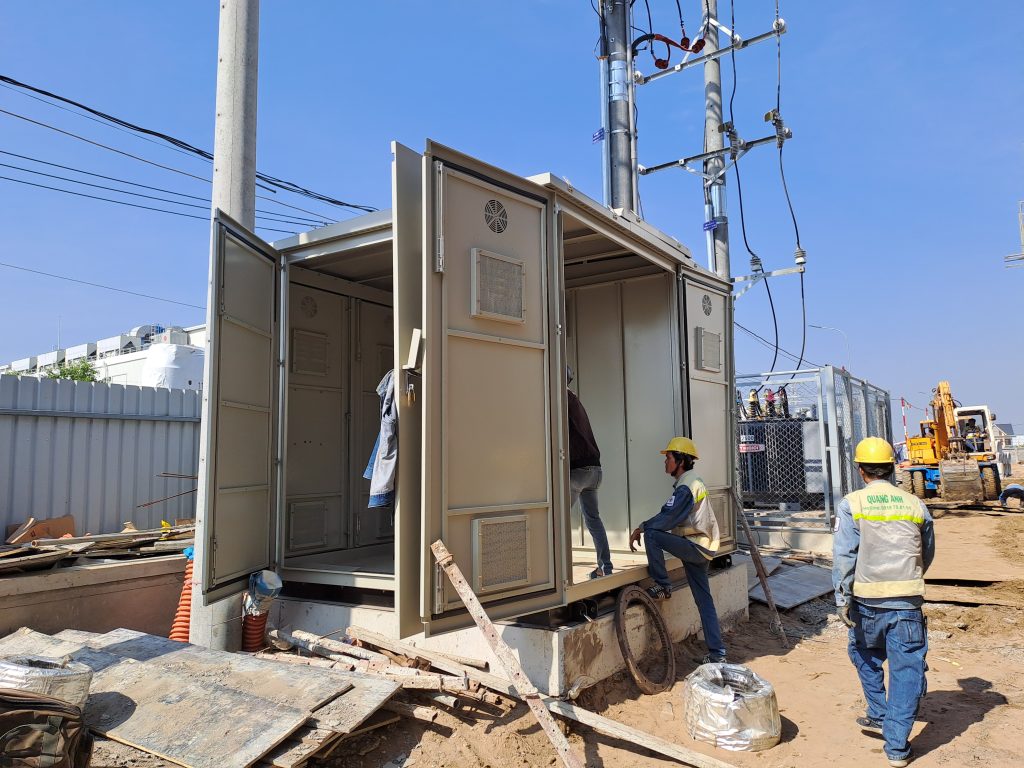News
300kW Charging Station Price: Cost Analysis and Investment Benefits
The price for a 300 kW charging station is currently not exactly known but can be estimated to exceed 3 billion VND, including the costs of the charging pole, substation and other auxiliary equipment.
Cost Structure of 300kW Charging Station
The cost of a 300kW charging station consists of multiple factors such as the price of the charging pole, investment in the substation, and auxiliary equipment. Although accurate figures for a 300kW station are unavailable, the investment cost for the closest capacity, a 250kW pole, is nearly 3.3 billion VND, indicating that a 300kW station will be higher.
The deployment of a 300kW station in the Vietnamese market comes with many cost factors that need careful consideration. To help CEOs and business leaders better understand the cost picture, we provide detailed analyses below.
1. Cost of Charging Station Equipment
The value of the 300kW ultra-fast charging station equipment ranges from 500 million to 1.5 billion VND per pole. This investment depends on the brand and the technical features of the equipment including the charging pole, management electronics, and accompanying control software.
2. Installation and Electric Infrastructure Costs
Costs for electric infrastructure installation for the station can vary significantly, from 50 to 300 million VND depending on the scale. Particularly, upgrading the power grid and investing in substations with capacities from 320-400 KVA is a major cost factor, with costs ranging from 100 to 500 million VND. Other costs such as distribution cabinets, router cabinets, and cable systems cost from 150 to 250 million VND for a set of three poles (two 120kW poles and one 60kW pole). Additionally, fire prevention system costs range from 50 to 150 million VND.
3. Land and Permit Costs
The cost of land rental for ultra-fast charging stations can vary from 10 to 50 million VND per month, depending on the location. In addition, obtaining construction and electrical connection permits requires a budget from 20 to 100 million VND depending on the specific locality.
4. Management and Operational Costs
Operational management costs for the station cannot be ignored, with management software and other operational expenses ranging from 50 to 200 million VND annually.
Besides the above cost factors, the fast charging performance of the 300kW station plays a crucial role in optimizing investment capital efficiency. This ultra-fast station is ideal for public areas or places where customers need short breaks on highways, with fast charging speed to minimize use time and increase revenue from investment.
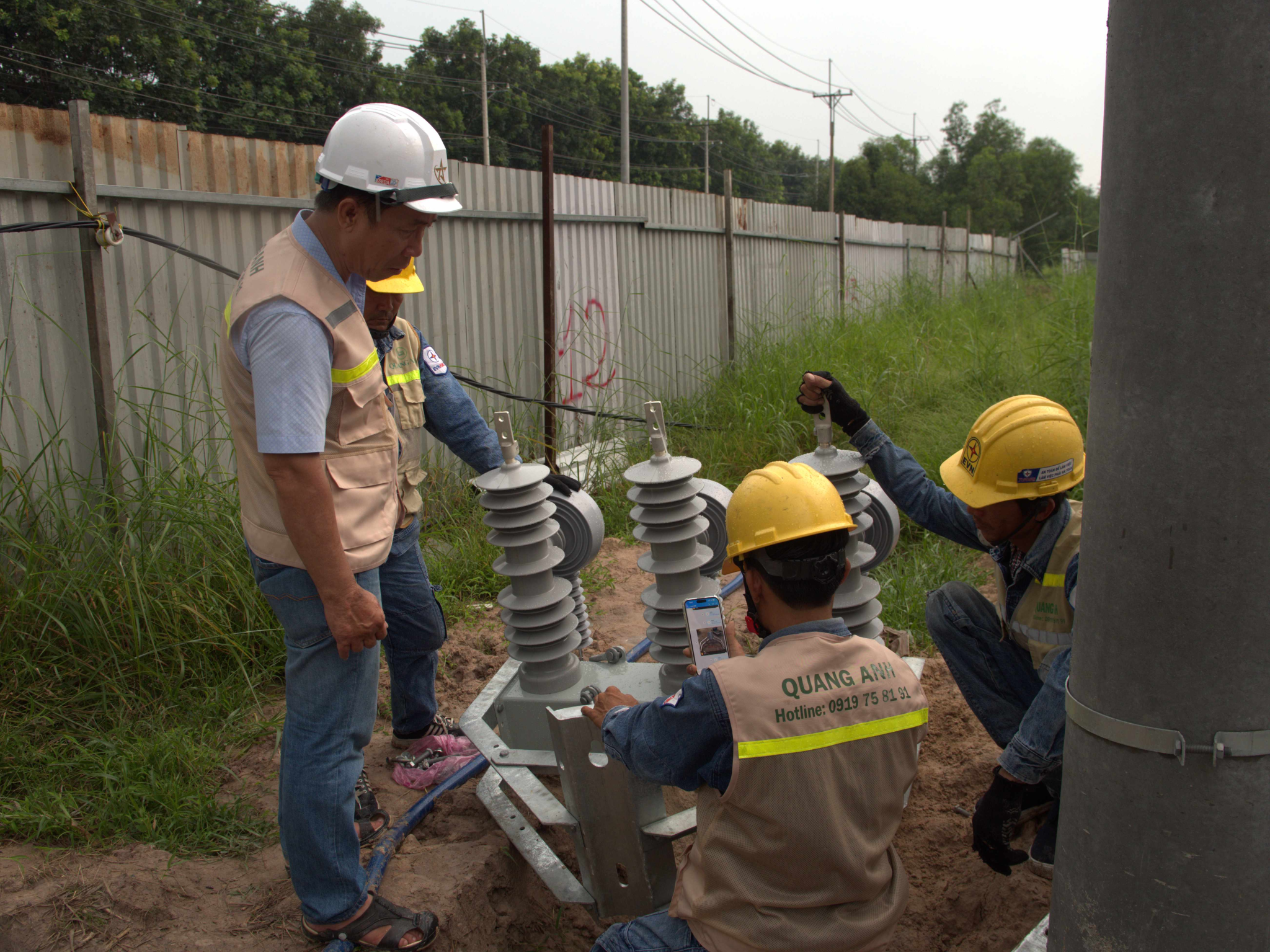
Investment in Electric Infrastructure for Charging Station
Investment in electric infrastructure, particularly substations, represents a large proportion of total station costs. The investment cost for a substation with 4 poles can exceed 1 billion VND, depending on the region and required capacity.
Investing in electric infrastructure for electric vehicle charging stations in Vietnam is gaining attention as the demand for electric vehicles continues to rise. With the goal of net-zero emissions by 2050, developing electric infrastructure has become a key factor.
According to expert GS.TS Le Anh Tuan, the total investment capital for electric vehicle charging stations in Vietnam from now until 2050 is expected to exceed 90 billion USD. In Power Plan VIII, around 9 billion USD must be added to the electric infrastructure by 2030, reaching 14 billion USD annually during the 2031-2050 period.
Development Roadmap for Charging Station Infrastructure
- By 2027: Focus on major cities like Hanoi and Ho Chi Minh City to develop charging stations for high-income households.
- From 2027 to 2030: Expand charging stations beyond urban areas to prepare for increasing demand.
- After 2030: Increase the density of charging stations in both urban and rural areas, in line with improving financial capabilities of the population.
Goals in Major Urban Areas
- In Ho Chi Minh City, the proposal is pushing for the construction of at least 3,000 charging and battery-swapping points, meeting the needs of 350,000 – 400,000 electric motorbikes.
- In Hanoi, management and reporting mechanisms for charging stations are being completed, with around 1,000 stations recorded.
Major cities like Hanoi, Ho Chi Minh City, and Da Nang will be prioritized for investment in fast public charging networks at transit points.
Investment Model and Challenges
The trend of developing franchised charging stations is being implemented to efficiently expand the network. Partnerships with entities like parking lots, gas stations, and shopping centers to share profits is a reasonable strategy.
However, investing in synchronized electric infrastructure to avoid overloading the power system, along with state policy support and standardizing technical standards, are challenges that need to be addressed.
The entire process is part of Vietnam’s sustainable energy policy and diverse electric infrastructure development to ensure that electric vehicles can become a popular means of transportation.
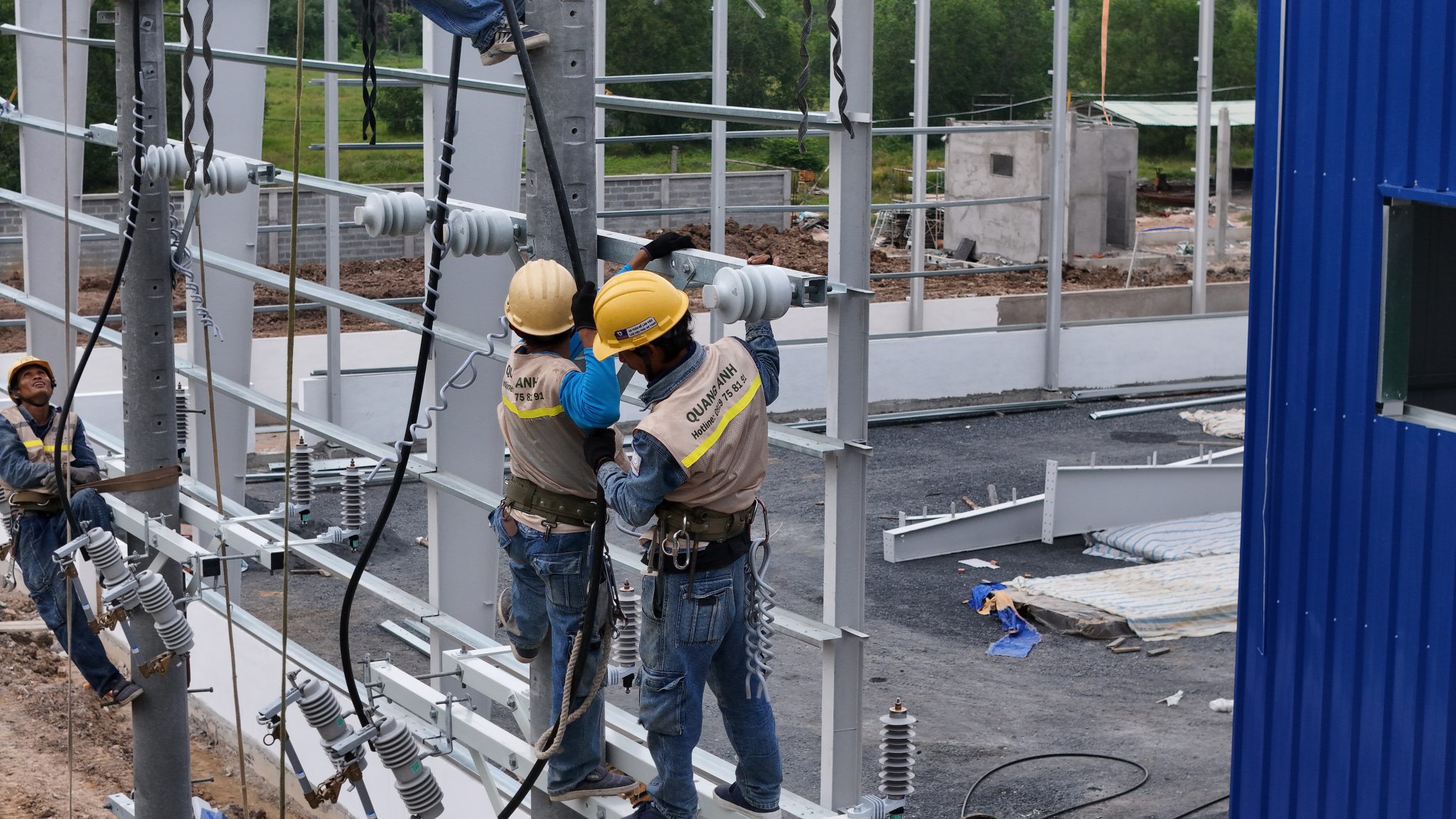
Auxiliary Equipment Costs for Charging Station
Beyond the main costs, auxiliary equipment such as power cables, distribution cabinets, and router cabinets significantly impact the total cost, adding several hundred million VND to the investment in the charging station.
Auxiliary equipment costs at the charging station are an important factor in the total investment for electric charging stations. The main factors affecting these costs include the type of charging station, capacity, hardware, installation cost, management software, and maintenance.
- Main hardware costs: Level 2 AC charging stations have hardware costs ranging from 2,500 – 7,000 USD, while Level 3 DC fast charging stations are more expensive, from 20,000 to 50,000 USD depending on capacity and features.
- Installation costs: These costs are typically significant, with level 2 stations ranging from 2,000 to 5,000 USD, while DC fast chargers can reach up to 50,000 USD. In Vietnam, installation costs for AC stations range from 15 – 50 million VND, and DC stations from 100 – 500 million VND, depending on specific conditions.
- Software and networking costs: Including charging management software, monitoring and processing payments, with costs of 200 – 500 USD per year for AC stations and 500 – 1,000 USD per year for DC stations. Advanced energy management systems can add approximately 4,000 – 5,000 USD.
- Maintenance and repair costs: These costs range from 500 – 1,000 USD per year for level 2 stations and around 1,000 – 3,000 USD per year for fast charging stations to maintain operational efficiency.
- Other auxiliary costs: Pulling electrical power, constructing the foundation and canopy also adds costs from 10 – 100 million VND for electrical pulling and 15 – 50 million VND for auxiliary infrastructure.
Total auxiliary equipment costs for commercial charging stations can range from 4,500 – 12,000 USD for AC stations and 30,000 – 100,000 USD for DC stations. Local factors, electric infrastructure, and local technical requirements also significantly affect total costs.
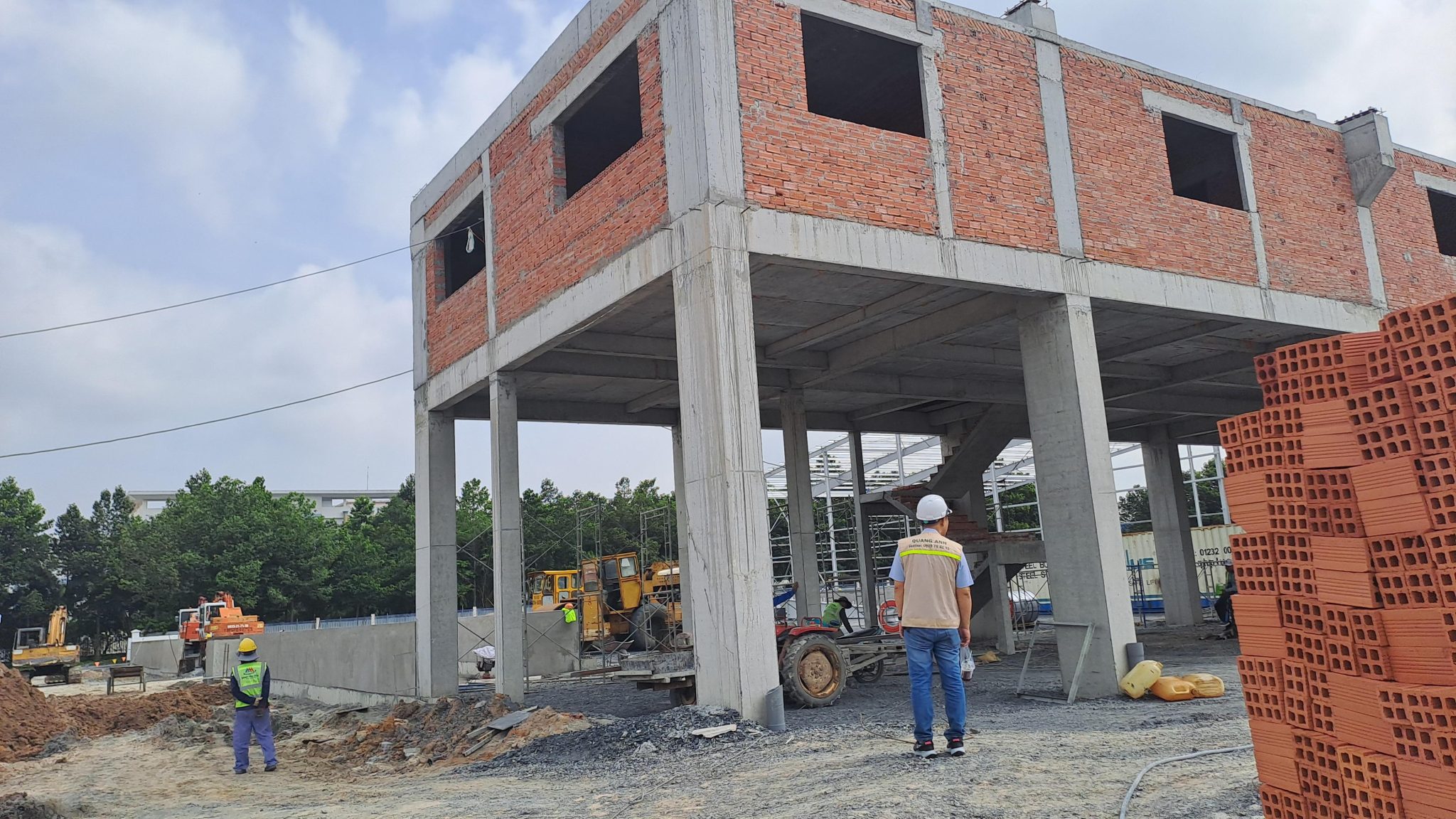
Cost of Electric Vehicle Charging Services and Related Services
The price for charging services in Vietnam ranges from a few thousand to 9,000 VND/kWh, with fast-charging stations of 60 kW or more costing about 8,900 VND/kWh or more, highlighting the necessary investment costs.
Cost of Charging Services
Electric vehicle charging services are becoming increasingly popular in Vietnam, and the price of this service is a significant factor for business leaders to consider.
1. Price of public and home electric vehicle charging:
-
VinFast announced the public electric vehicle charging fee as 3,210 VND/kWh, equivalent to the current fifth-tier residential electricity price. This fee includes VAT and does not add additional costs during charging. However, if customers leave the battery fully charged without unplugging, an extra 1,100 VND per minute will be charged from the 31st minute to limit station occupation.
-
For services from third parties, regular charging (AC) costs typically range around 7,900 VND/kWh, while fast charging (DC) costs 9,900 VND/kWh. Providers have forecast potential price fluctuations due to changes in electricity prices and regulations from the Ministry of Industry and Trade.
2. Power consumption and cost optimization:
-
Residential and industrial electricity prices used as the base for calculating charging prices are updated as follows:
-
Normal hours: about 2,870 VND/kWh.
-
Off-peak hours: 1,746 VND/kWh.
-
Peak hours can reach up to 4,937 VND/kWh.
To save costs, users should charge during off-peak hours or overnight.
-
The Ministry of Industry and Trade is finalizing options and regulations on electricity prices specifically for electric vehicles to ensure transparency and fairness, helping users make informed choices.
3. Charging station costs and pricing management trends:
- Currently, the cost of electric vehicle charging at public stations is often based on the retail business price for under 6 kV. This is a new service, and authorities are studying price adjustment mechanisms and policies to ensure fair competition for charging service providers.
4. Related services:
- Besides electric vehicle charging, charging equipment repair services are also receiving attention. For example, the price for replacing a genuine iPhone charging connector currently ranges from 150,000 VND to 1,250,000 VND depending on the model and warranty type.
The importance of optimizing Charging Service Prices is not only in cost-saving for consumers but also plays a crucial role in the sustainable development of the electric charging service industry in Vietnam.
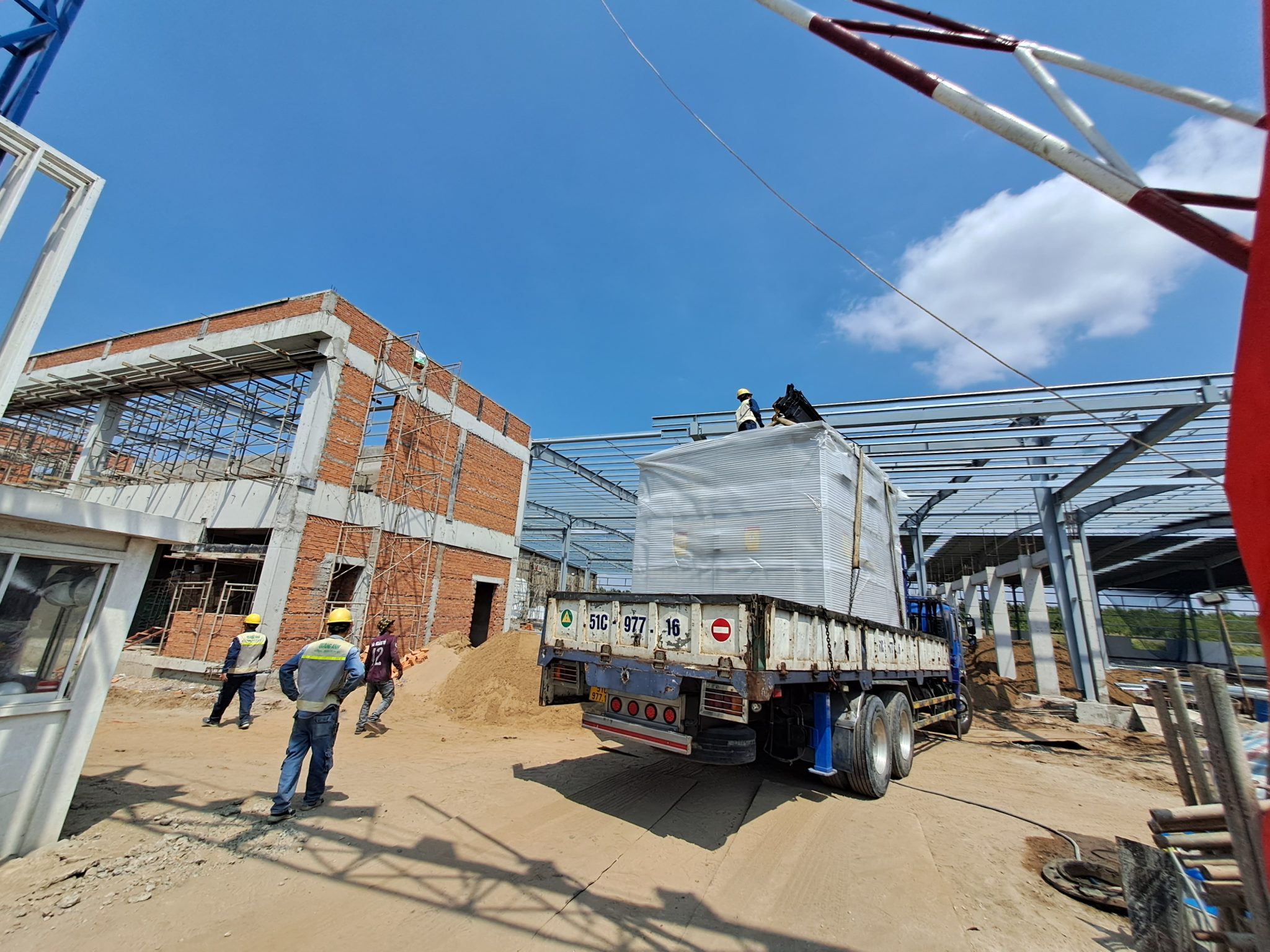
Estimated Costs for the 300kW Station
Based on existing costs, the estimated price for a 300kW station is over 3 billion VND, including necessary investment and equipment costs.
Investing in a 300kW charging station requires thorough financial preparation and essential technical equipment. To ensure efficient operation, businesses need to focus on significant expenditures such as substations and fast charging poles, along with other auxiliary costs.
The cost of installing a substation is an important part of the total investment for a 300kW station. The type of substation for this capacity can cost from 800 million VND to more than 1 billion VND, depending on the location and actual scale of the project. In addition, fast charging poles with capacities from 60kW to 120kW need to be considered to meet efficient charging demand. These poles cost from 278 million VND for 60kW types and can go up to 676 million VND for 120kW types, making the total charging pole cost around 1 billion VND if multiple poles are used together.
Auxiliary costs such as electrical distribution cabinet systems, control cabinets, and necessary cables from the substation to each charging pole usually range from 100 to 150 million VND. Meanwhile, land costs, including renting or purchasing land, and building electrical infrastructure can incur an additional several hundred million VND.
The total budget to complete such a 300kW station is predicted to range from 1.5 to 2 billion VND. Costs vary by locality, charging pole technology, and specific technical requirements.
When calculating operating costs, electricity prices need consideration. With an average electricity price for charging stations between 2,100 – 3,200 VND/kWh, investors need to anticipate return on investment capability and the impact of electricity price fluctuations in each locality.
The investment cost for charging stations may result in a payback period of over 3 years since the current electric charging sale price remains low.
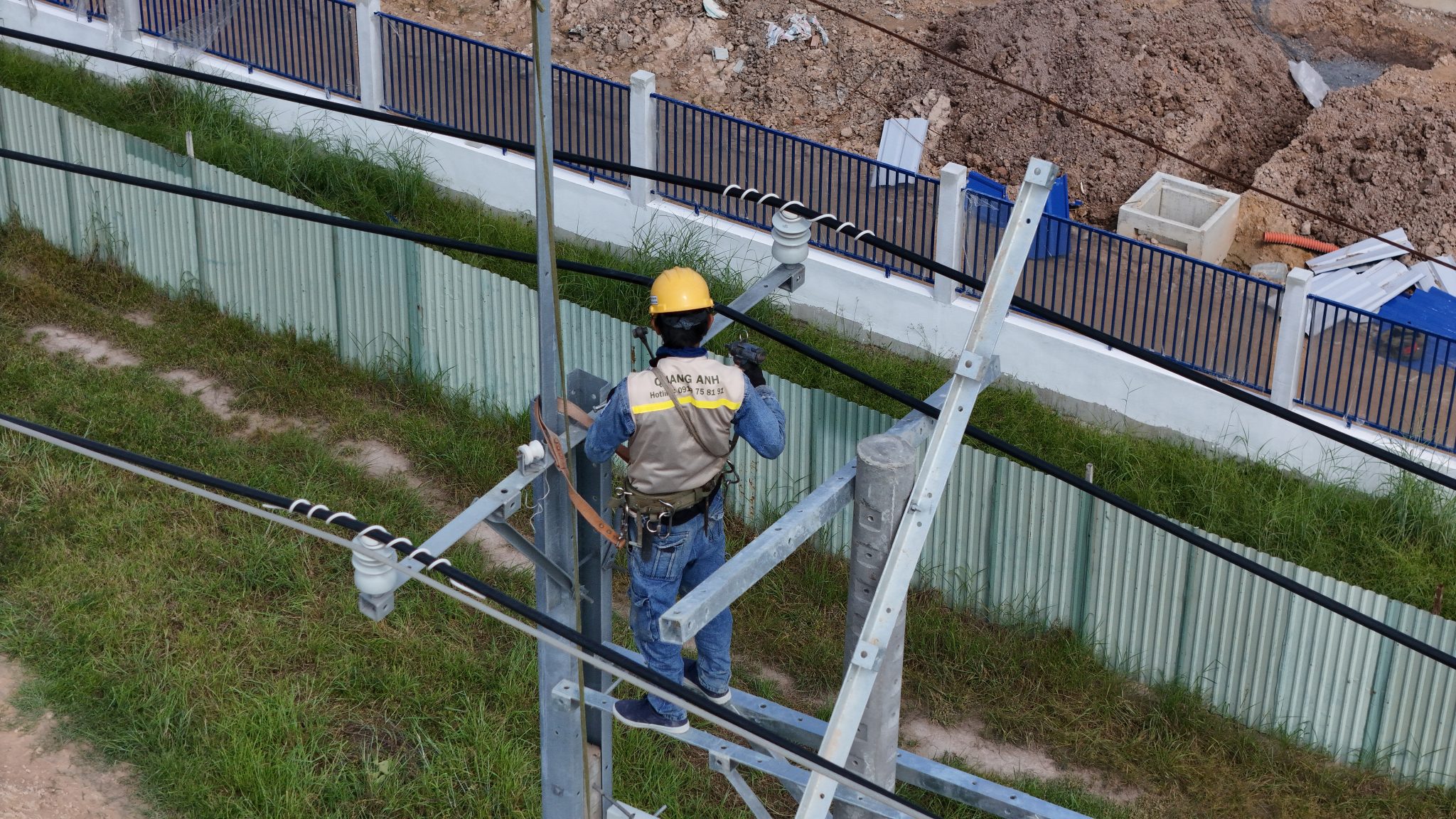
Investing in a 300kW charging station not only addresses power issues but also contributes to sustainable development in the energy sector. The substantial investment costs are accompanied by long-term benefits, optimizing efficiency, and meeting the increasingly growing market demand.
For more detailed information and a precise quote, please contact QuangAnhcons via hotline: +84 9 1975 8191.
QuangAnhcons provides investment and construction solutions for electric charging stations with a team of experienced experts, ensuring performance and economic efficiency for every project.

 Tiếng Việt
Tiếng Việt 简体中文
简体中文 Deutsch
Deutsch 日本語
日本語 한국어
한국어 ไทย
ไทย Русский
Русский Français
Français
